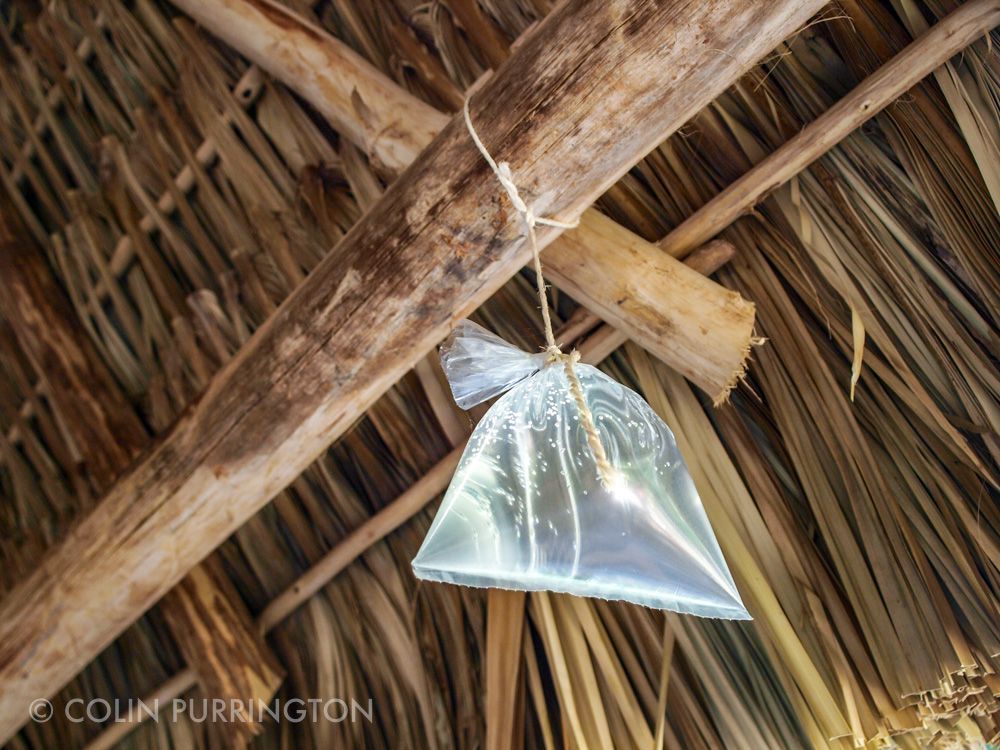I gave a Zoom lecture last night on why people should care about native bees, and promised the audience (friends of Belmont Hills Library, in Bala Cynwyd, PA) that I’d share some links, photographs, and answers to some of the questions at the end. If you have any lingering questions or thoughts, please don’t hesitate to contact me. Good luck attracting bees, and thanks again for the invitation.
My blog posts I referenced
- Guide to building and managing a mason bee hotel
- Where to buy mason bee houses
- The horrors of mass-produced bee houses
- Effects of mosquito sprays on humans, pets, and wildlife
- Identifying mantid egg cases in Pennsylvania
- My Instagram account
Links of interest
- iNaturalist
- Native Beeology (Timothy J. Stanley)
- Bee City USA
- Native Bee Awareness Initiative (Facebook)
- Native Bee Allies (Facebook)
Articles
- Little Free Libraries: Interrogating the impact of the branded book exchange (PDF)
- Pollen specialist bees
Bee books
- The Humane Gardener
- The Bee-Friendly Garden
- Our Native Bees
- 100 Plants to Feed the Bees
- Victory Gardens for Bees
- The Bees in Your Backyard
- Bees: An Identification and Native Plant Forage Guide
- The A Bee C Book
Answers to questions
- Good native ground cover to replace English ivy? A: golden groundsel (Packera aurea).
- Honey from any native bees? A: yes, from stingless bees. I have a few photographs from Costa Rica and Mexico. It’s more liquidy than European honey bee honey.
- Are yellow jackets wasps or bees? A: wasps
- How deep do ground-nesting bees dig? A: I looked up the record and in some species the tunnels can extend down 10 feet or more. But 12 to 18″ is more typical.
- Do figs actually eat wasps? A: Figs in the wild are pollinated by wasps, but as I mentioned, the varieties we grow in the United States don’t require pollination, so the crunch is not due to wasps within. Fig and biology fans should read Gods, Wasps, and Stranglers: the Secret History and Redemptive Future of Fig Trees.
- Is it worth keeping hostas in pots for leafcutter bees A: It is never worth keeping hostas alive for any reason. But leafcutter bees will use them, I’ve read.
Photographs I showed or meant to show
For more photographs of bees (and wasps), my full collection is on SmugMug.
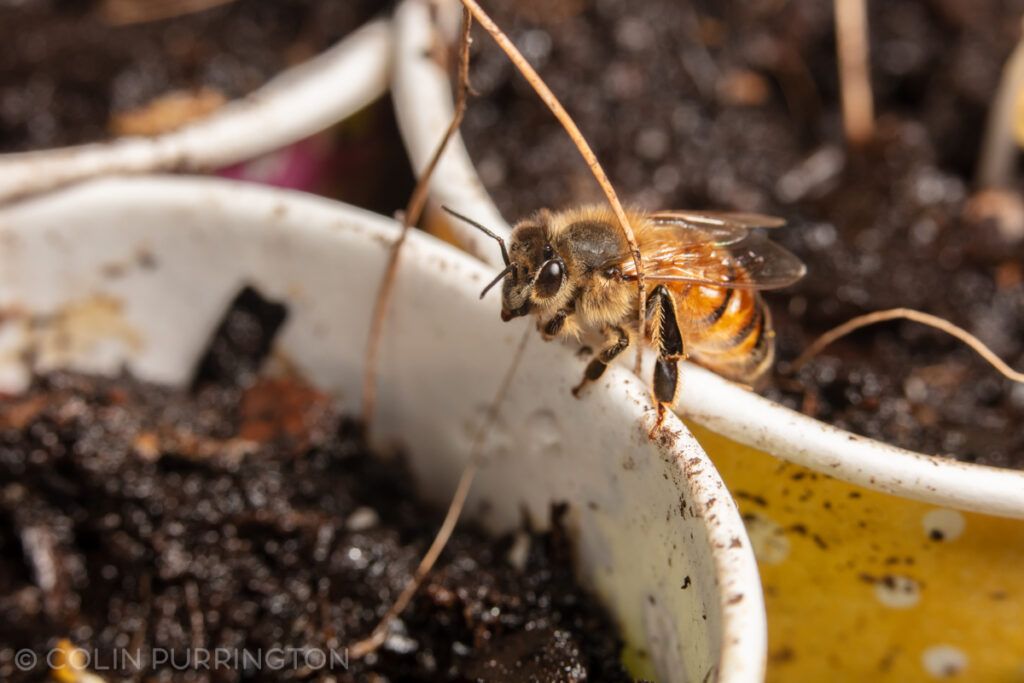
Apis meliffera 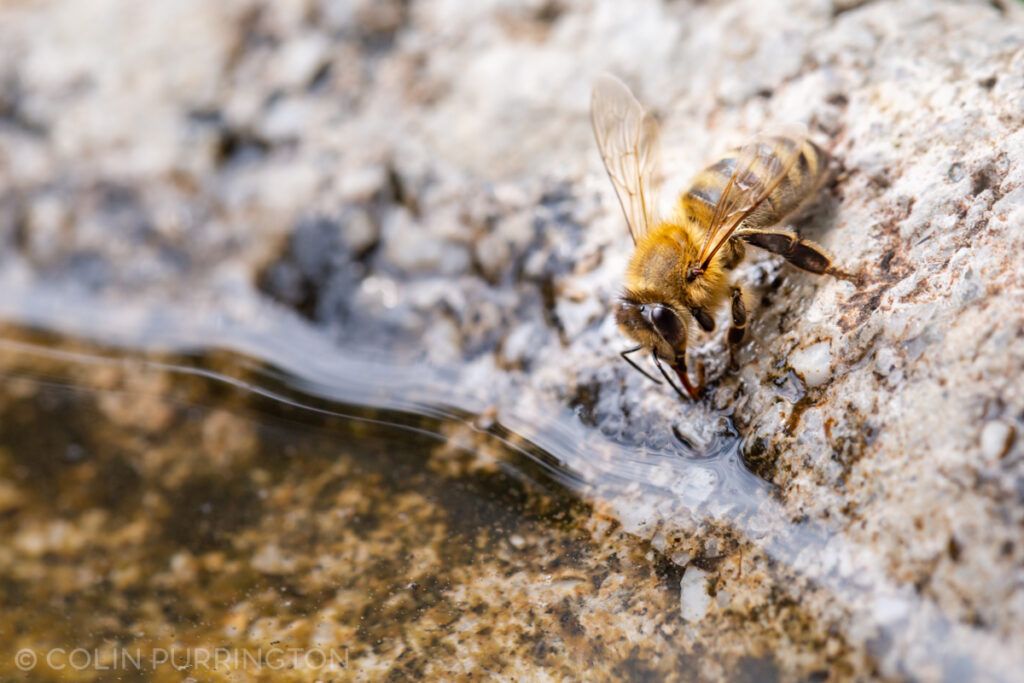
Apis mellifera 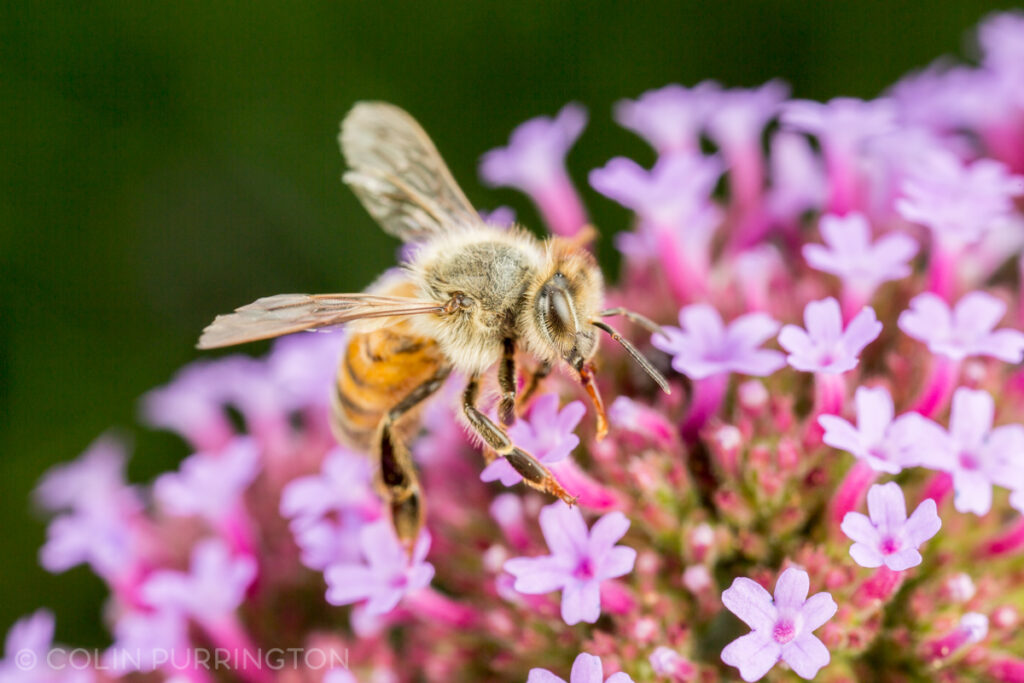
Apis mellifera 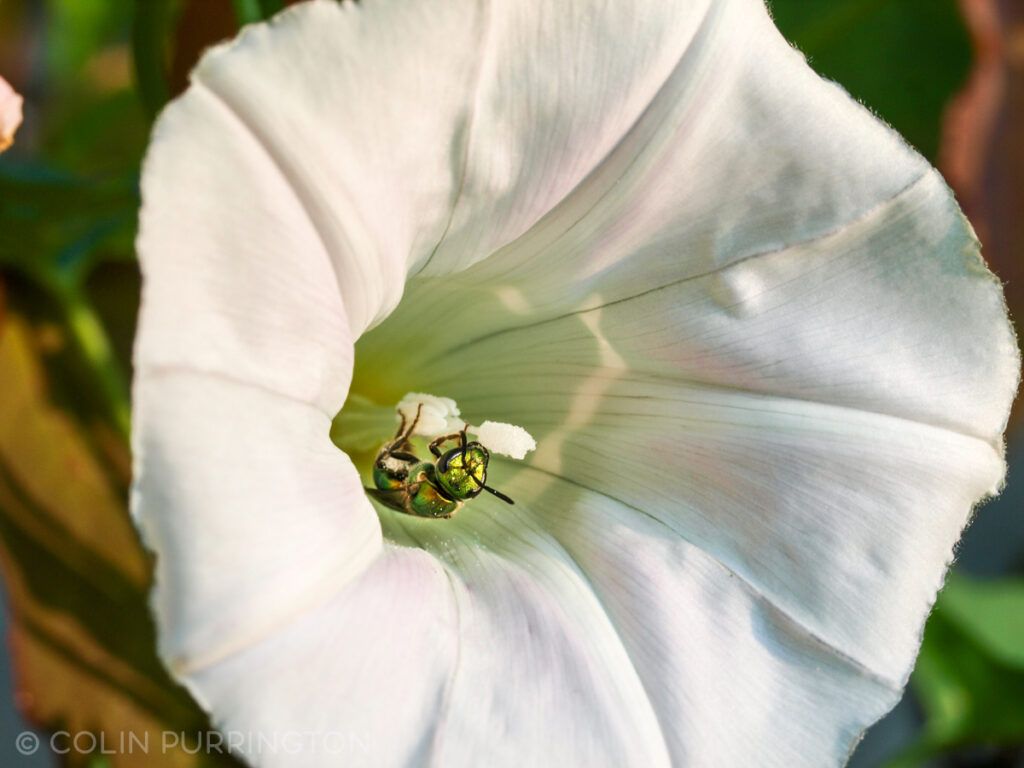
Augochlora pura 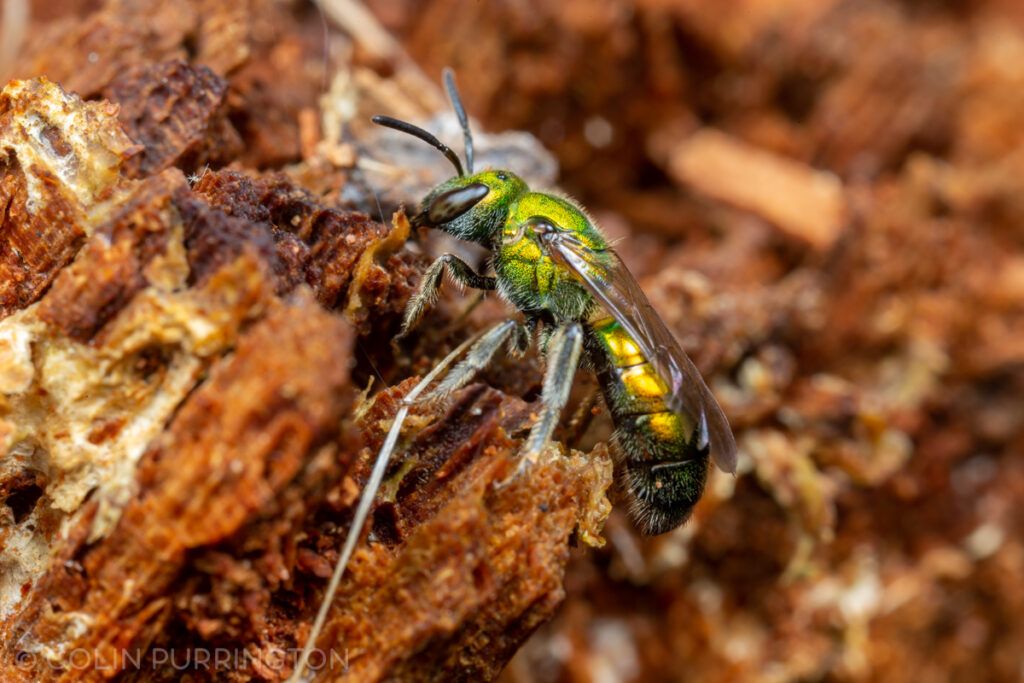
Augochlora pura 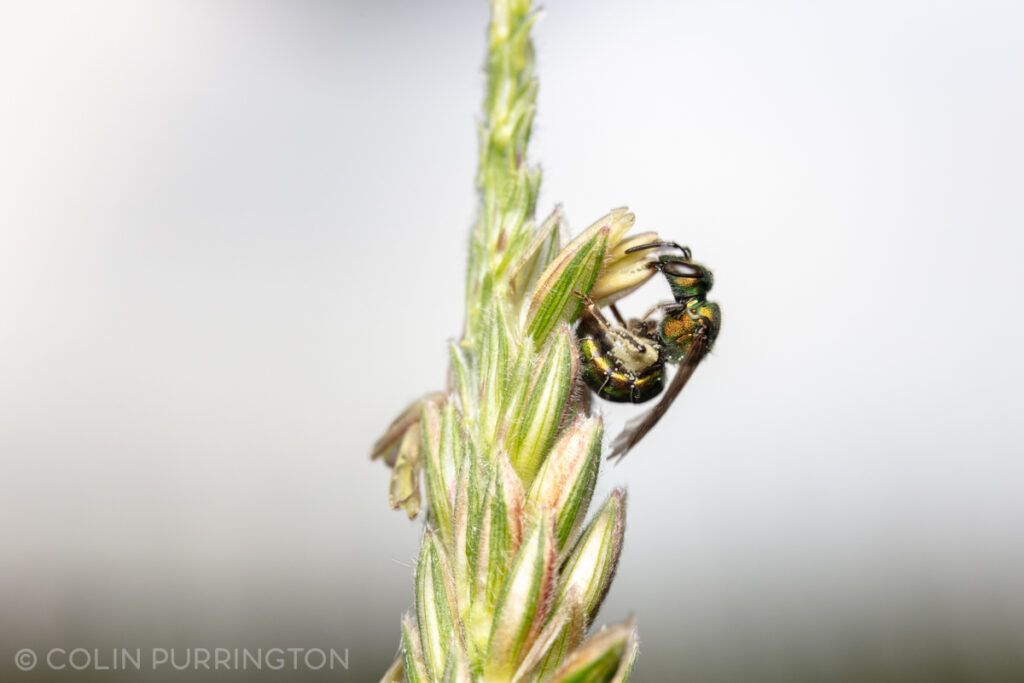
Augochlora pura 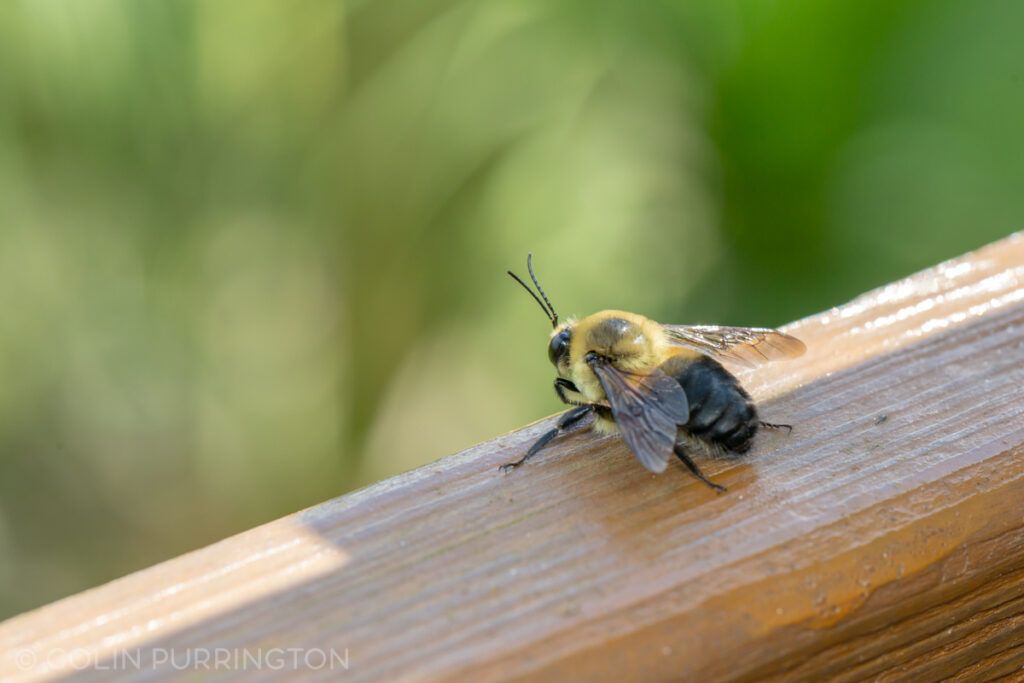
Bombus griseocollis 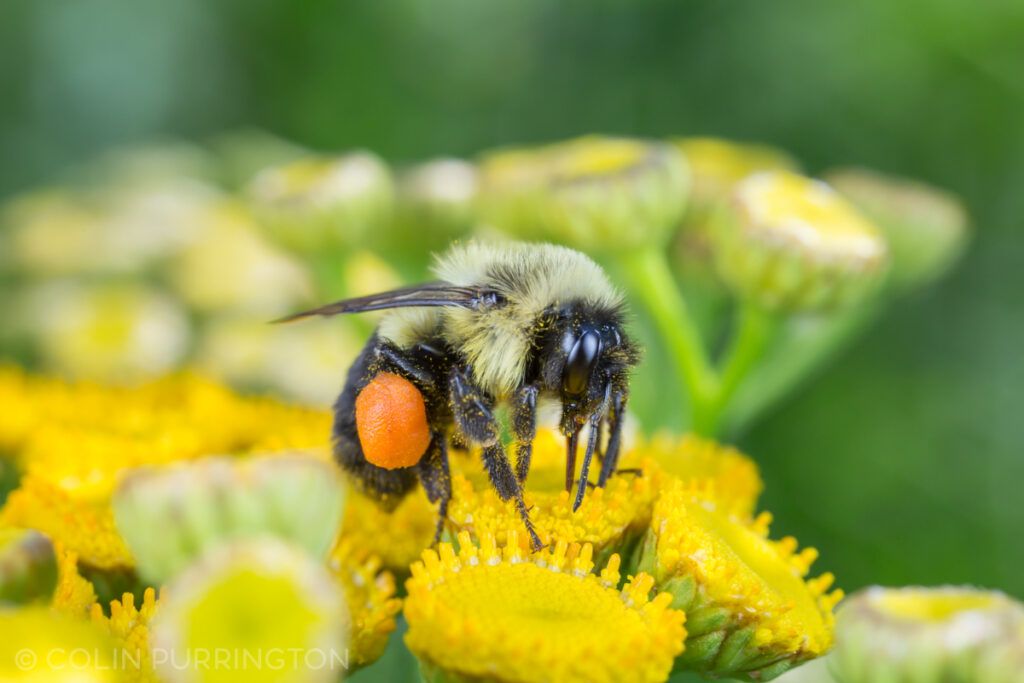
Bombus impatiens 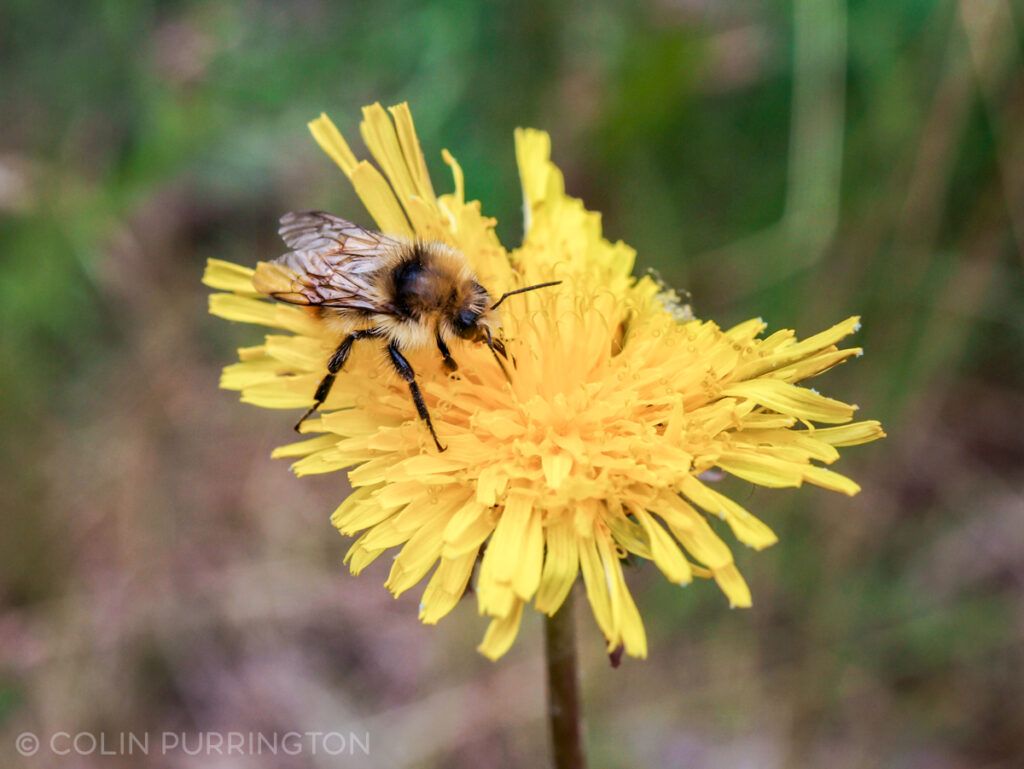
Bombus mixtus 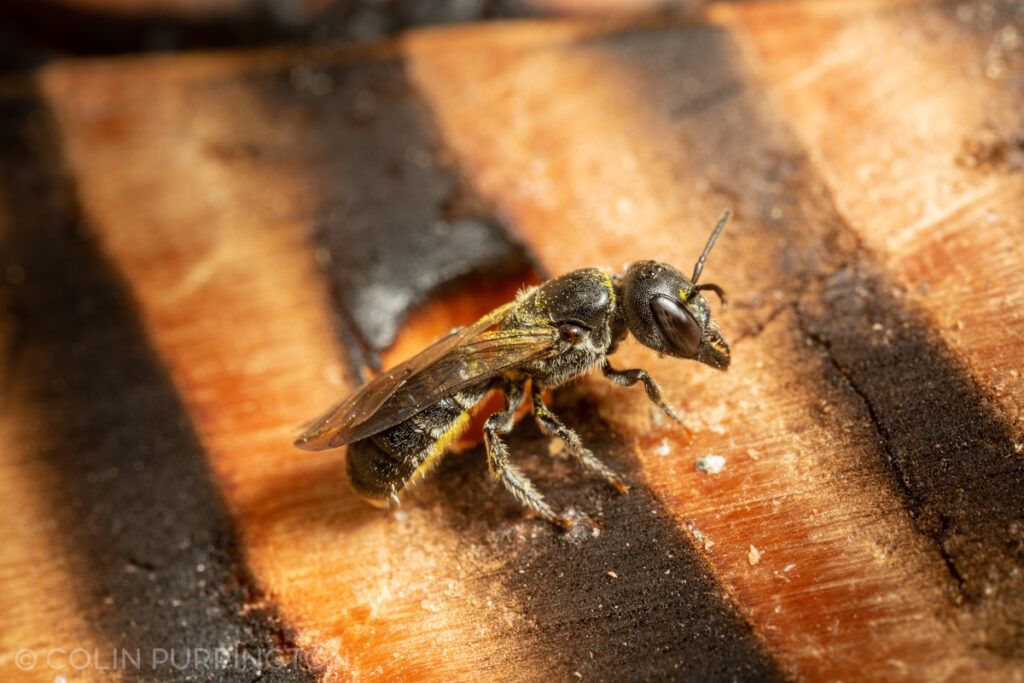
Chelostoma philadelphi. 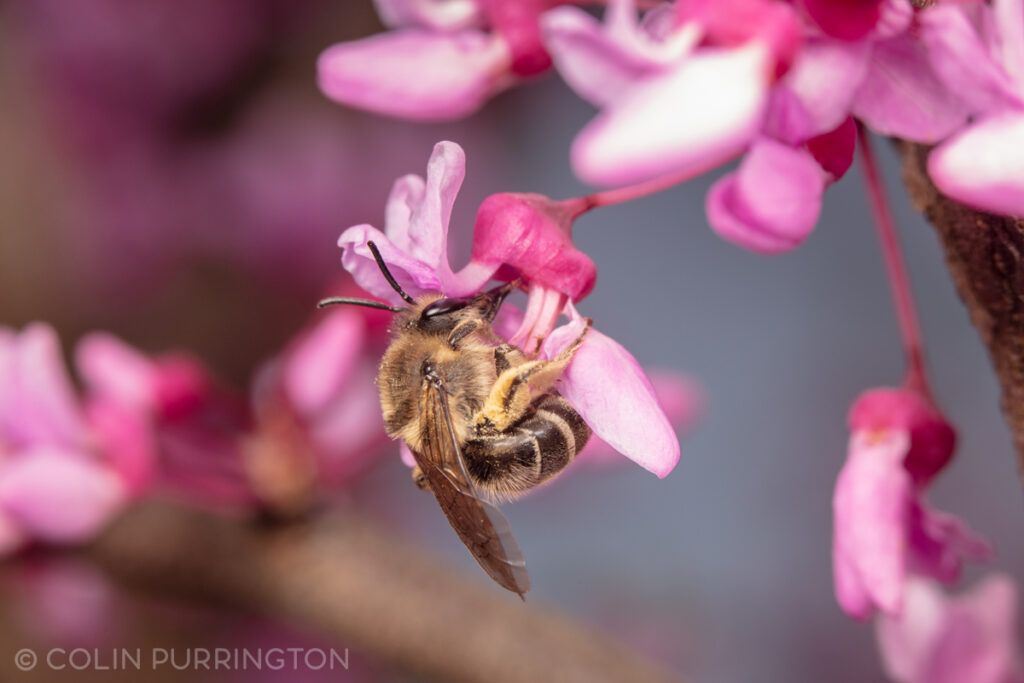
Colletes inaequalis 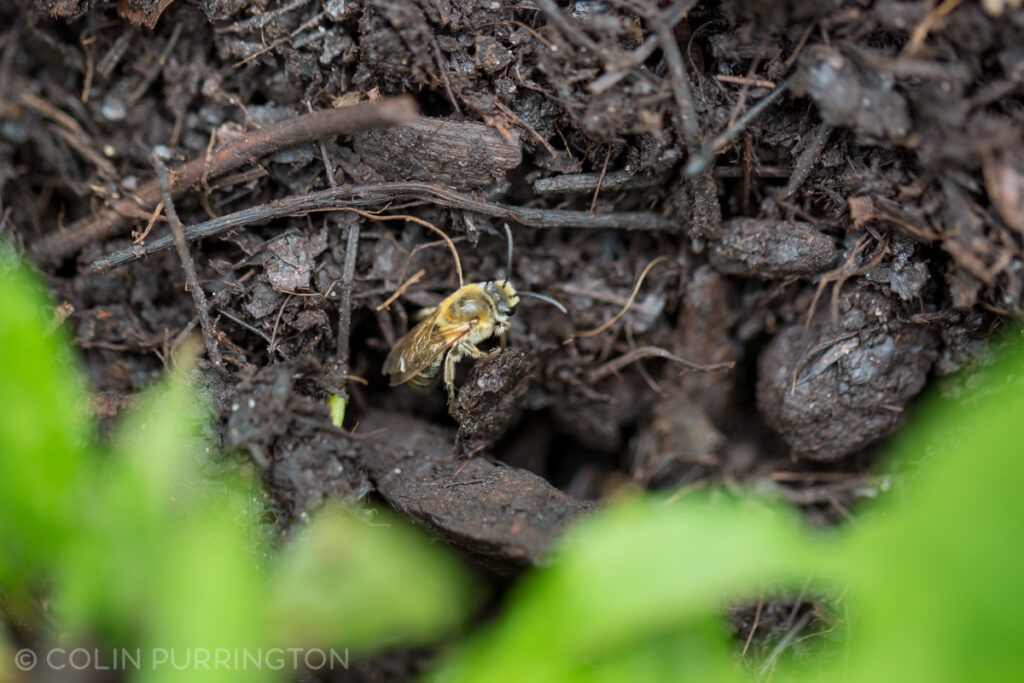
Colletes thoracicus 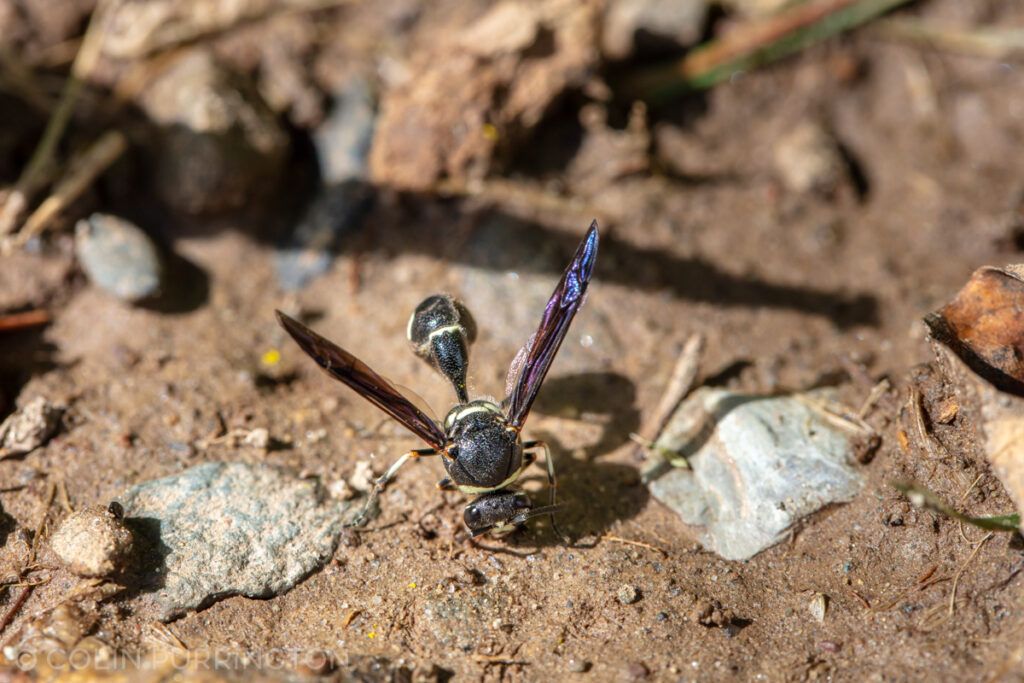
Eumenes fraternus 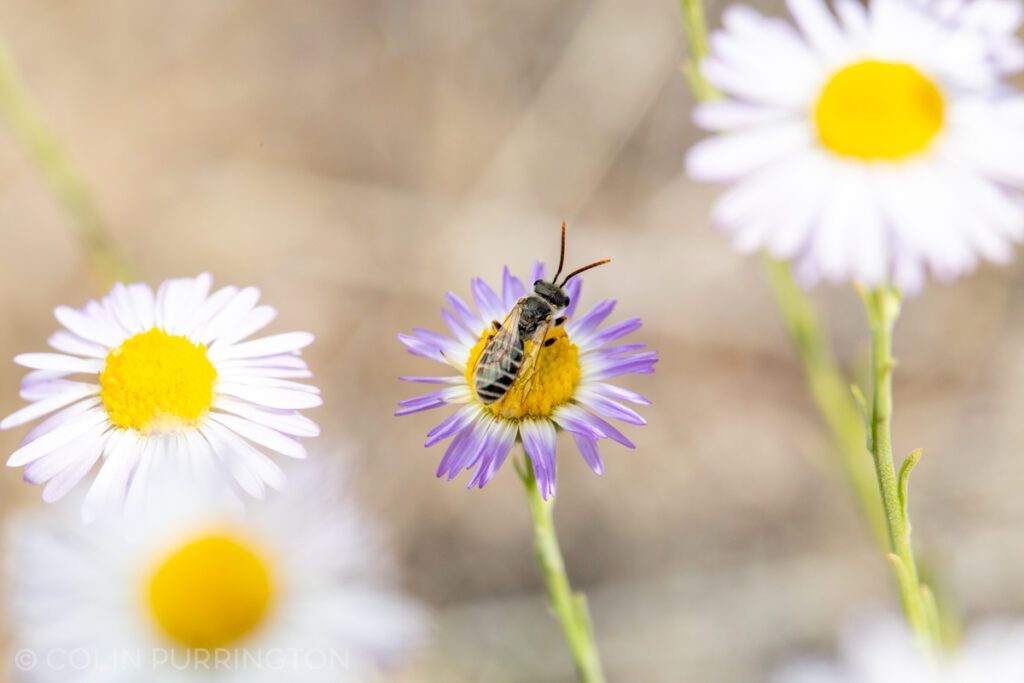
Halictus ligatus 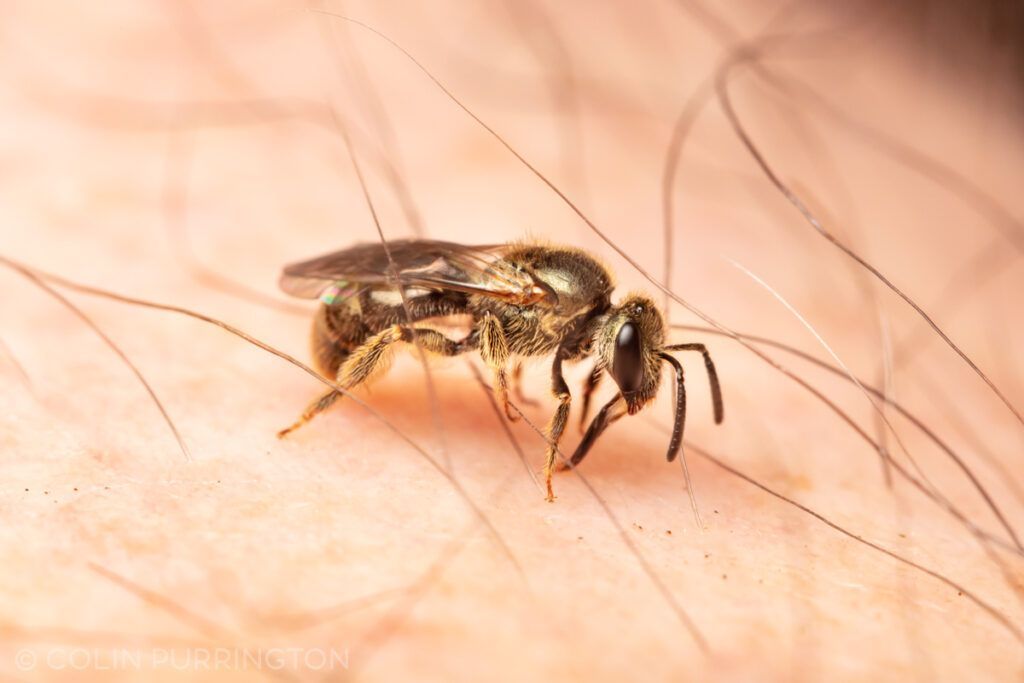
Lasioglossum 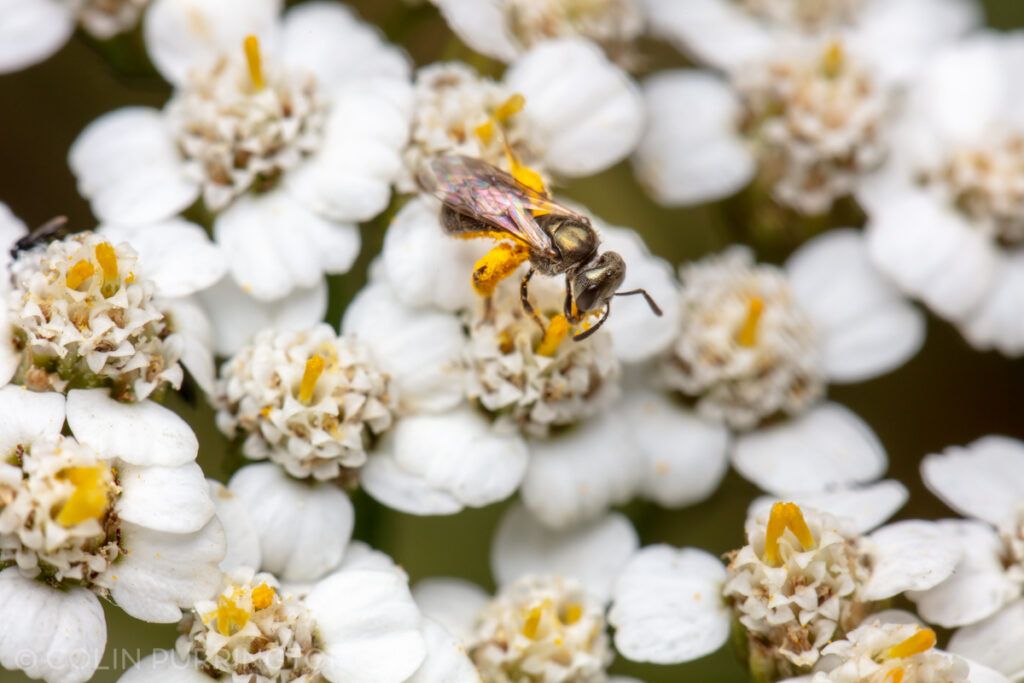
Dialictus 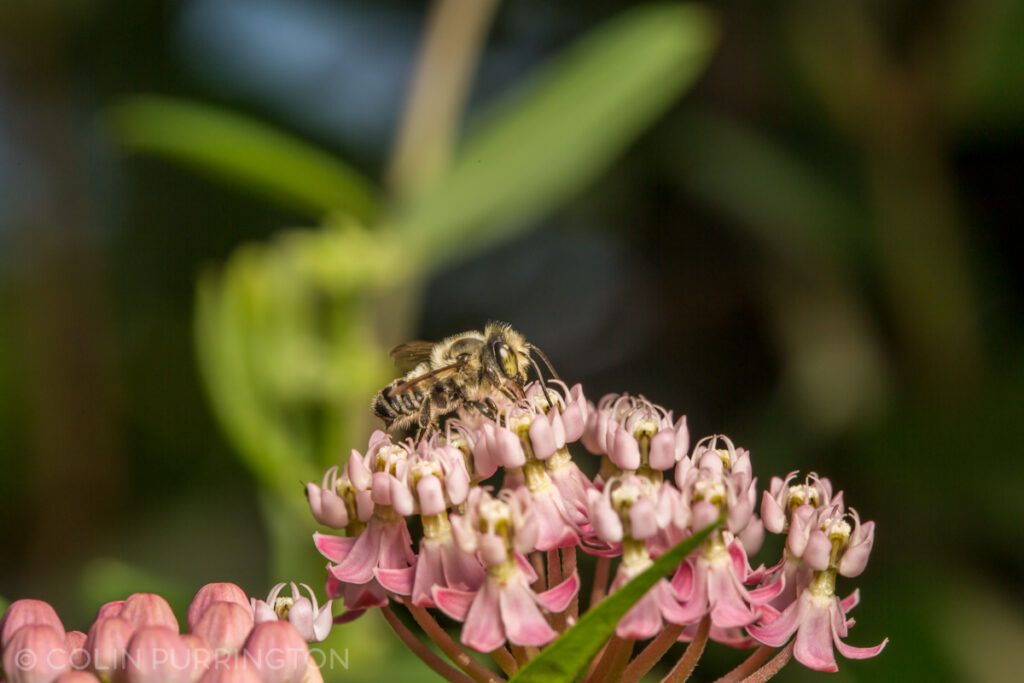
Litomegachile 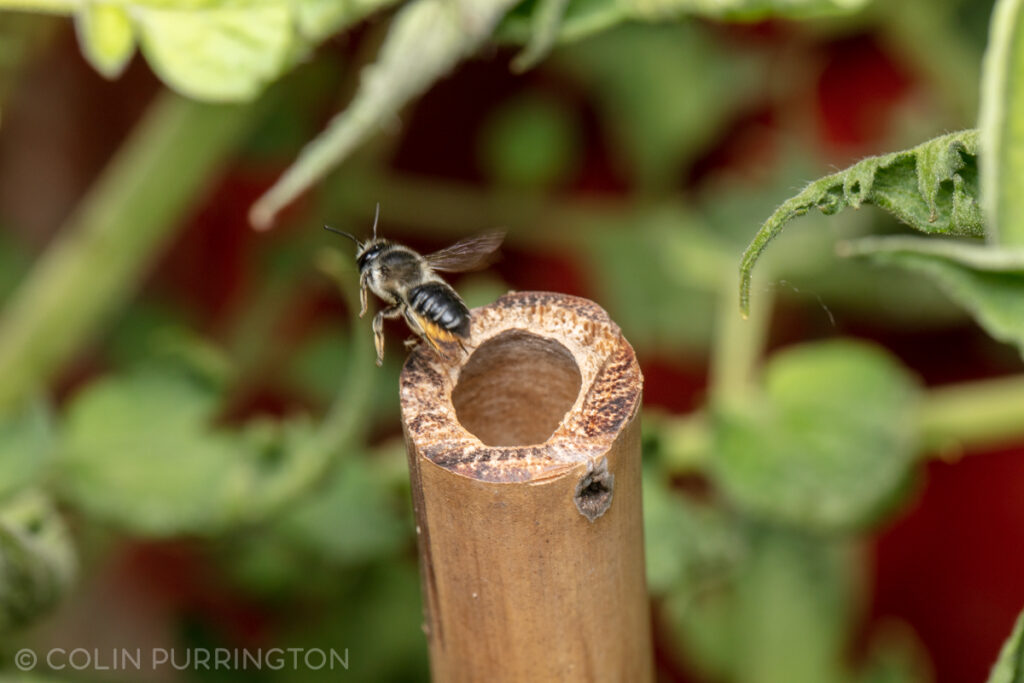
Megachile mendica 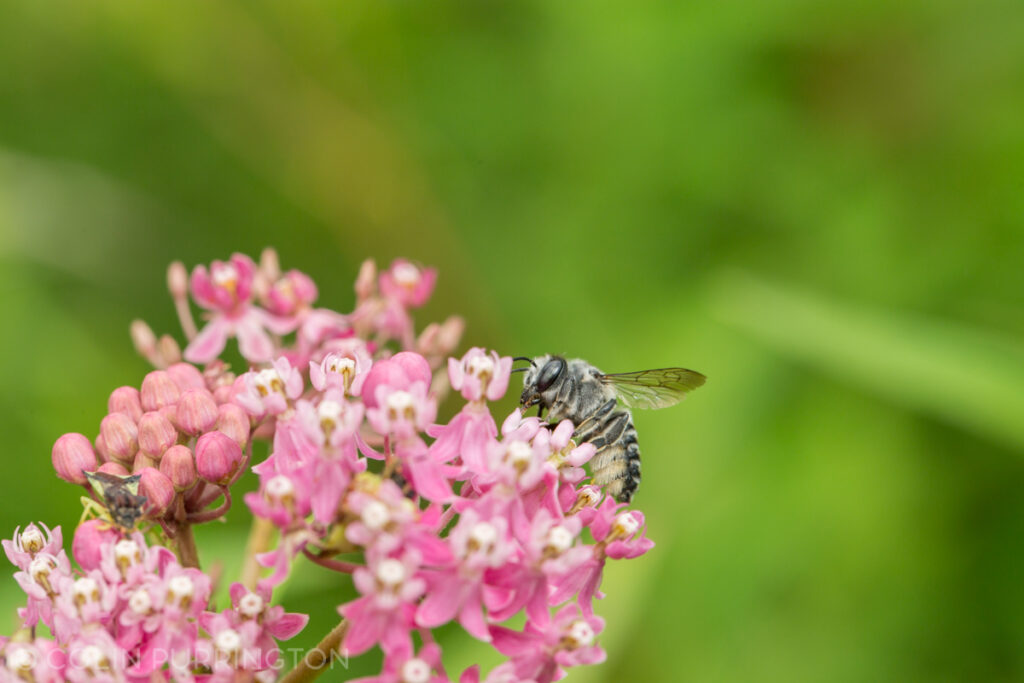
Megachilini 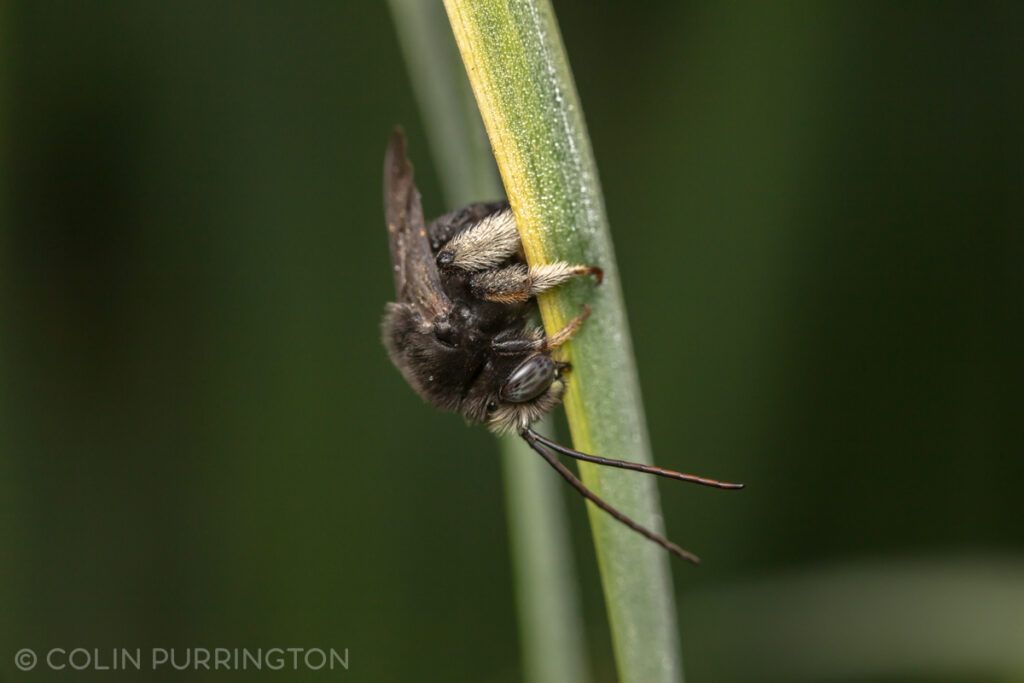
Melissodes bimaculatus 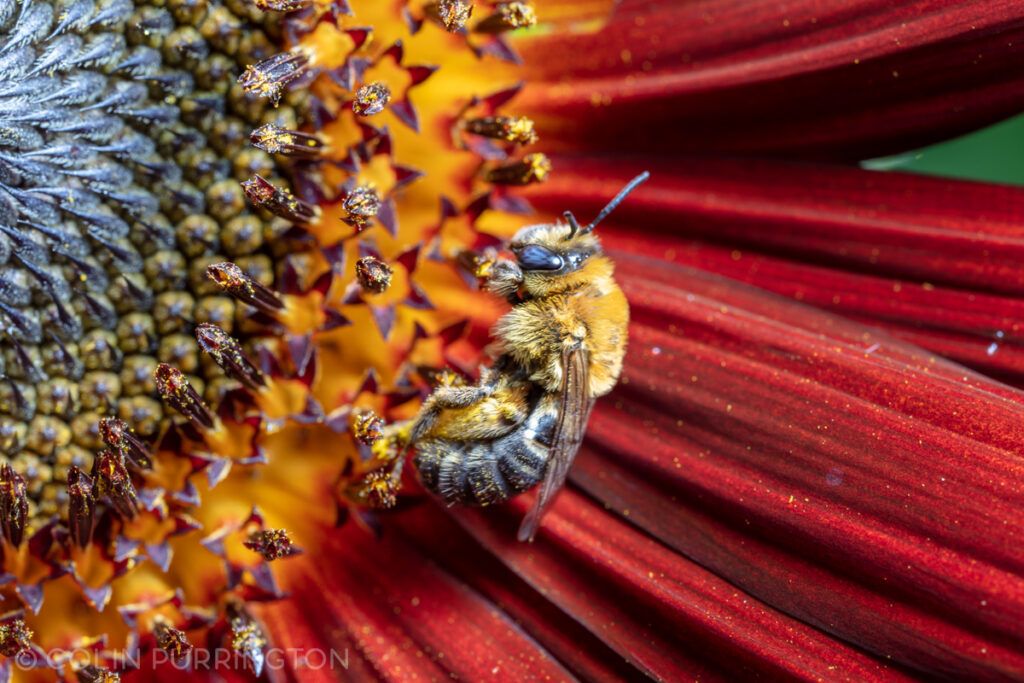
Melissodes 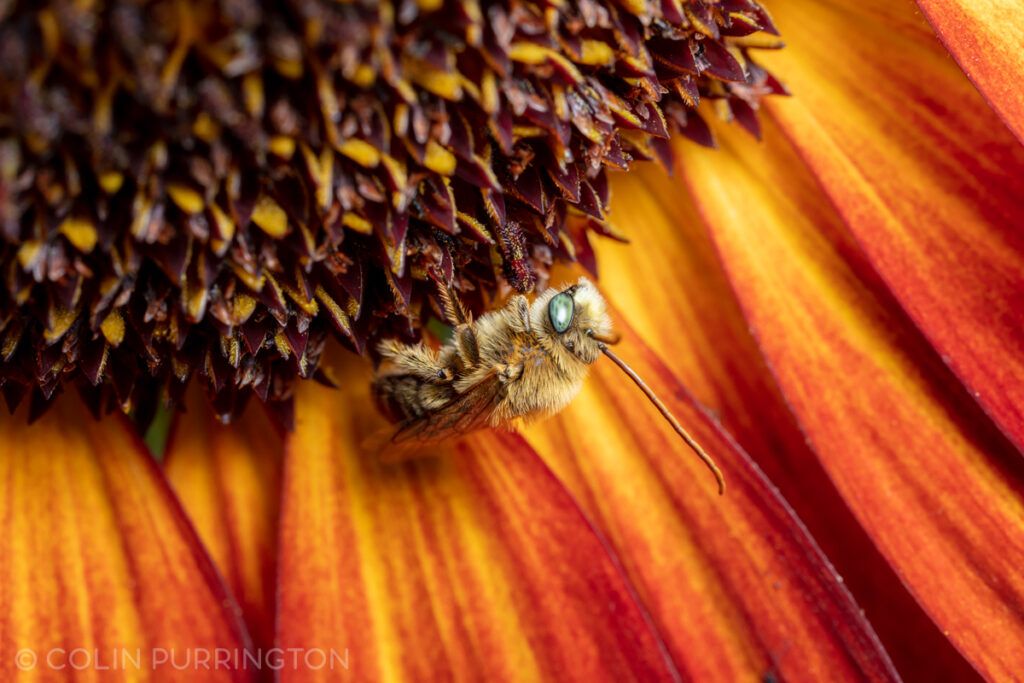
Melissodes 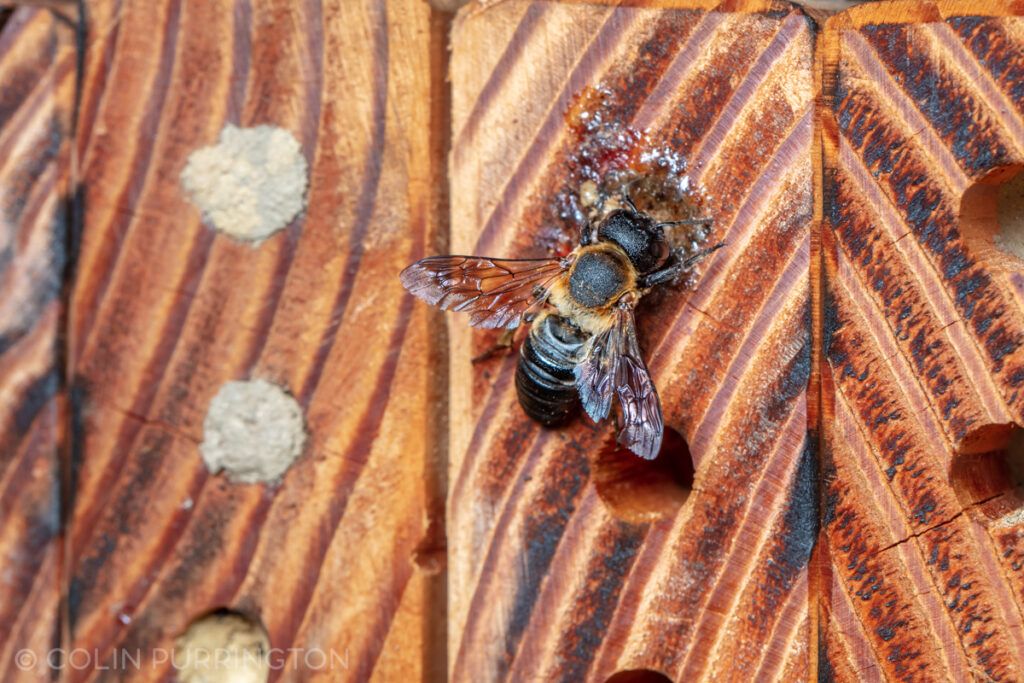
Megachile sculpturalis 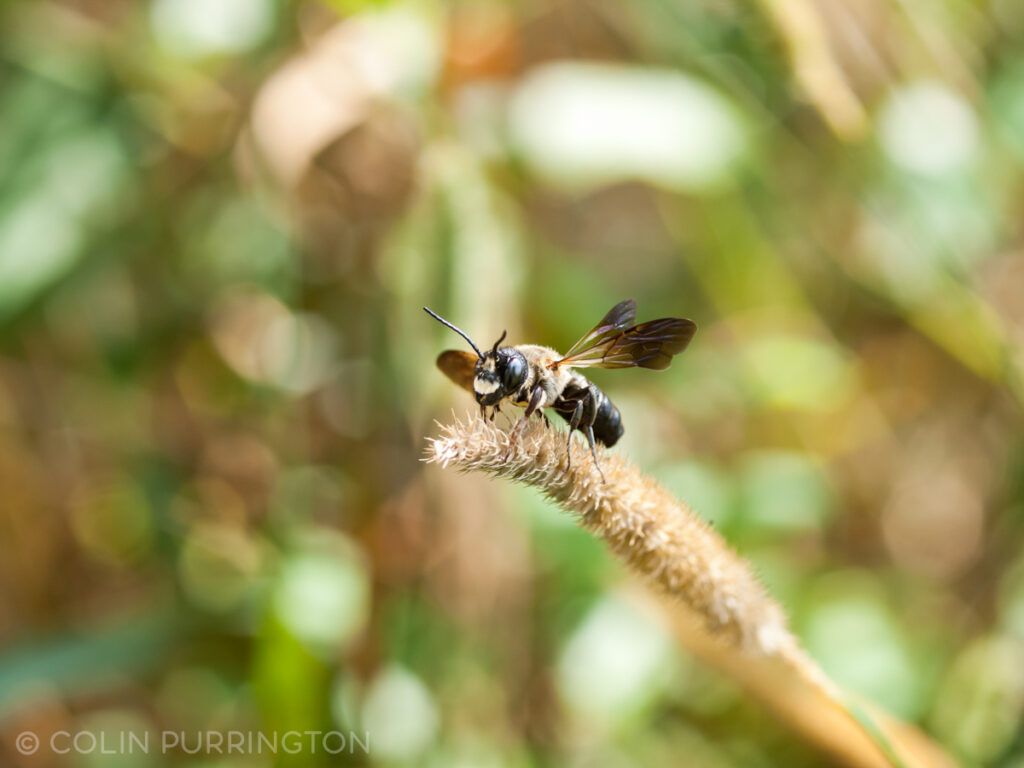
Megachile sculpturalis 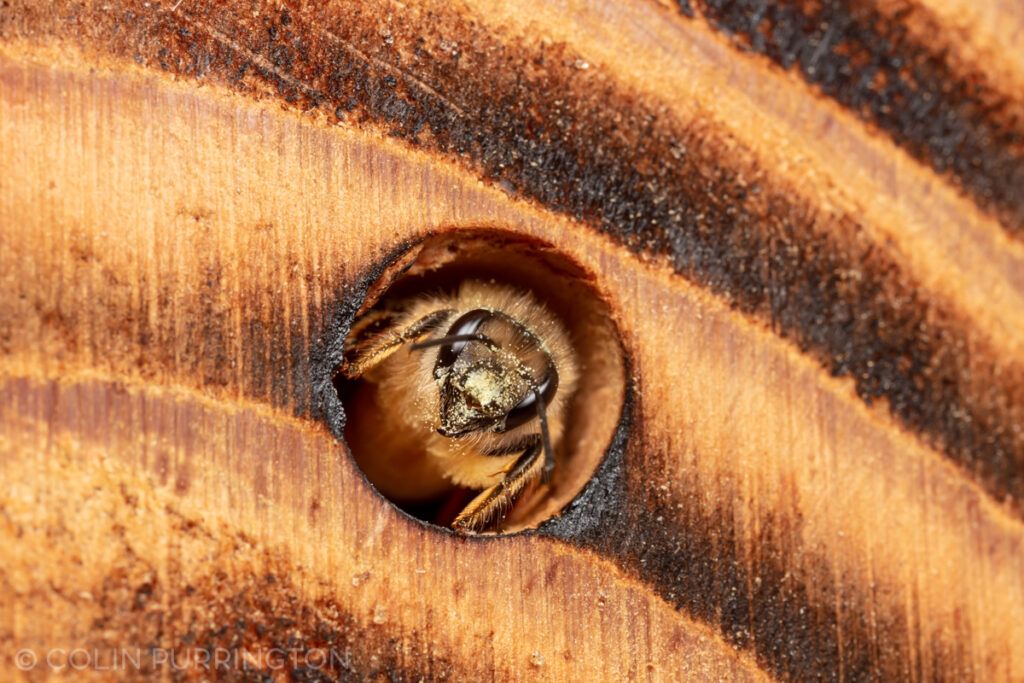
Osmia taurus 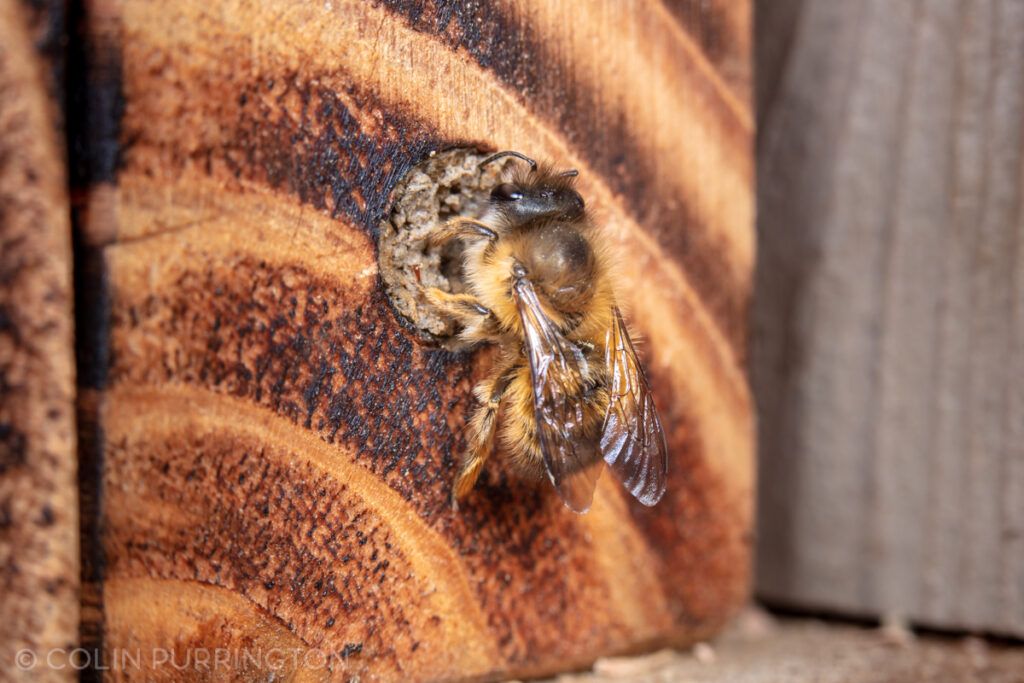
Osmia taurus 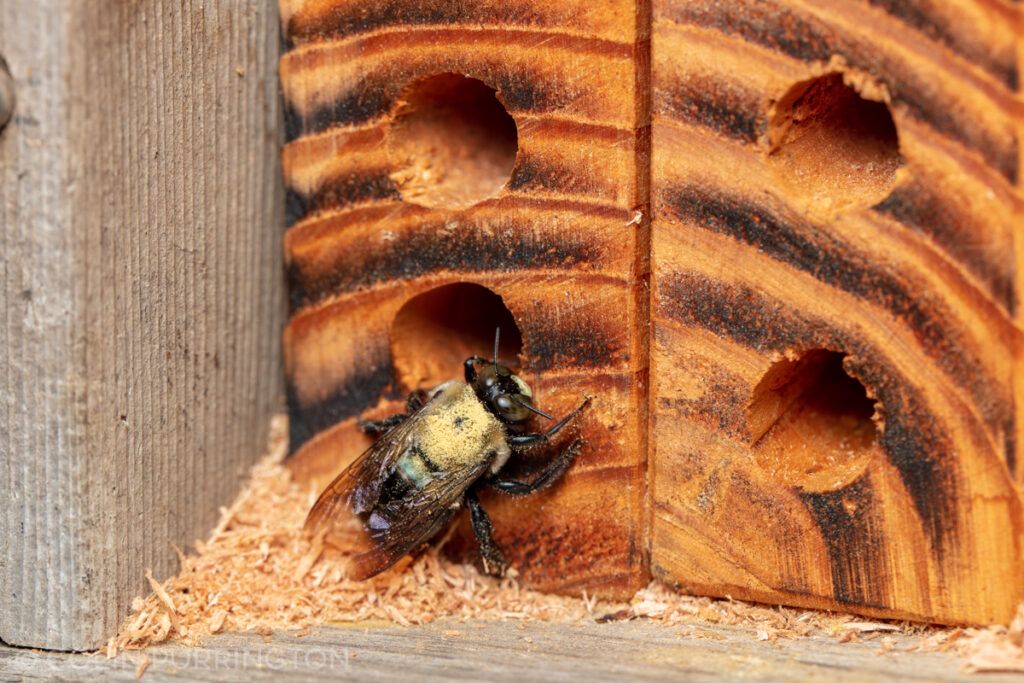
Xylocopa virginica 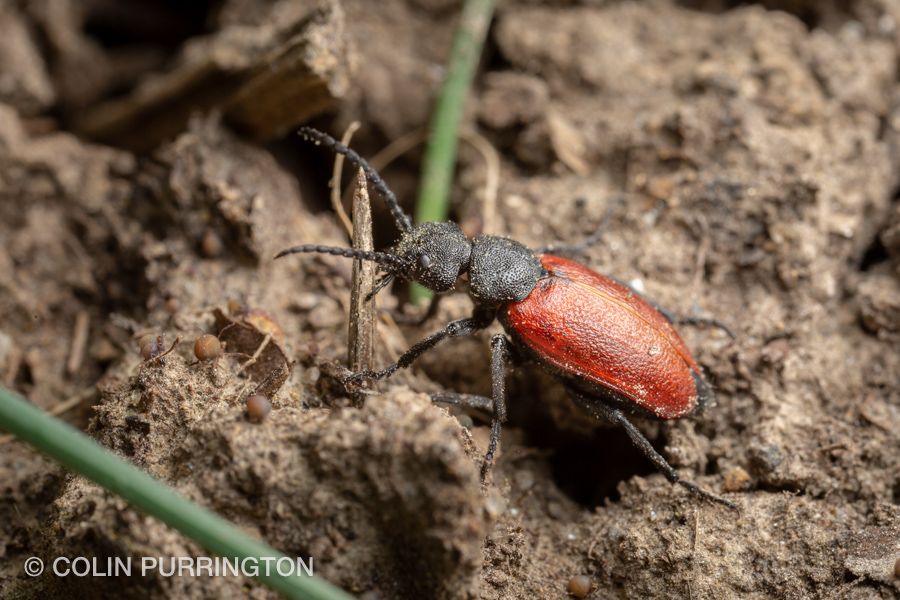
Tricrania sanguinipennis 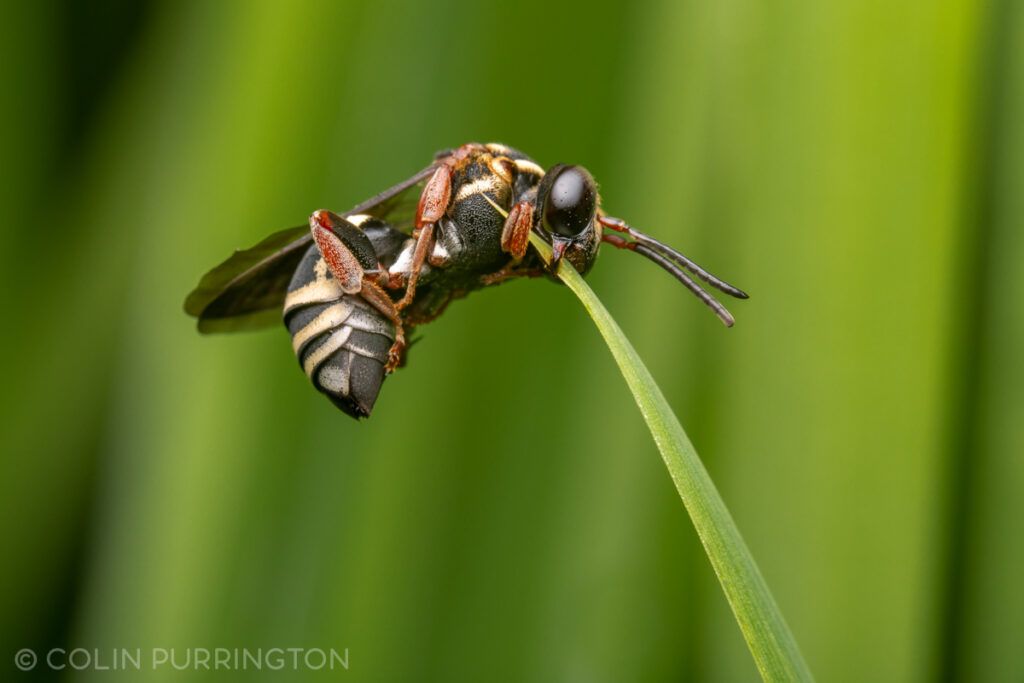
Triepeolus 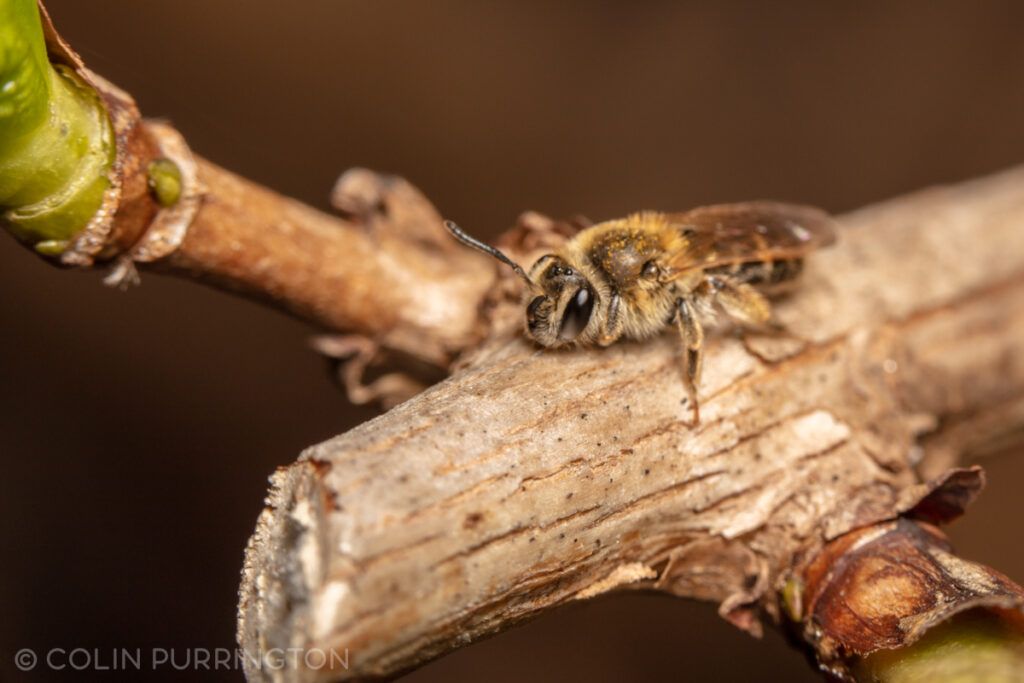
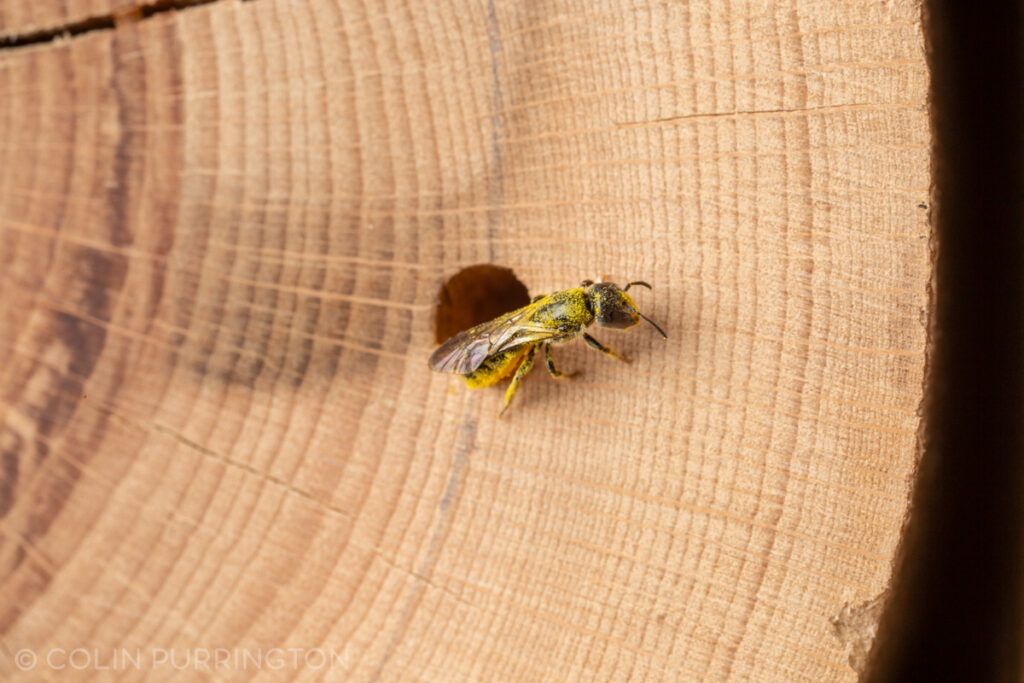
Chelostoma philadelphi
#BeeBest


